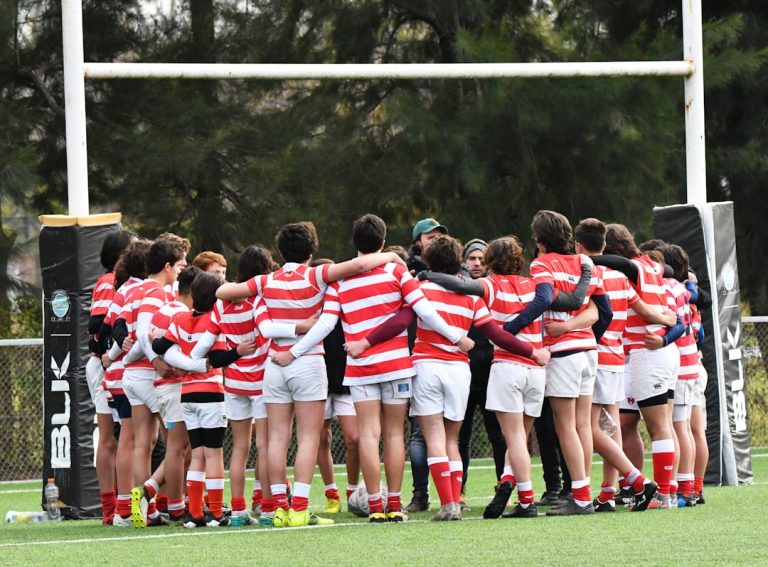
Mentoring and coaching are distinct professional development approaches with different objectives and methodologies. Mentoring involves a long-term relationship where an experienced individual (mentor) provides guidance, advice, and support to a less experienced person (mentee) based on their own expertise. The mentor serves as a role model, helping the mentee enhance their skills, knowledge, and self-assurance.
Coaching, in contrast, is typically a shorter-term, goal-oriented relationship. A coach assists the coachee in identifying and achieving specific objectives. The coach employs targeted questioning techniques, offers feedback, and facilitates the coachee’s development of their own solutions and strategies.
The primary focus of mentoring is the overall personal and professional growth of the mentee, while coaching emphasizes performance improvement and skill development. Mentoring tends to be more informal and relationship-based, whereas coaching is often more structured and goal-driven. Both mentoring and coaching are valuable tools for personal and professional development.
Understanding their differences is crucial for effectively applying them in various situations. Each approach offers unique benefits and can be utilized to support individuals in their growth and advancement.
Key Takeaways
- Mentoring focuses on long-term career development, while coaching is more task-oriented and short-term.
- A good mentor possesses qualities such as empathy, active listening, and the ability to provide constructive feedback.
- Building trust, setting boundaries, and maintaining confidentiality are essential for a strong mentoring and coaching relationship.
- Setting clear and achievable goals, as well as communicating expectations, is crucial for successful mentoring and coaching.
- Effective communication skills, such as active listening and asking open-ended questions, are key for successful mentoring and coaching relationships.
- Challenges in mentoring and coaching can be overcome through open communication, flexibility, and a willingness to adapt.
- Success and growth in mentoring and coaching can be measured through feedback, goal achievement, and the mentee’s personal development.
Identifying the Qualities of a Good Mentor and Coach
Being a good mentor or coach requires a specific set of qualities that are essential for building a strong and effective relationship with the mentee or coachee. A good mentor should possess strong communication skills, empathy, patience, and the ability to provide constructive feedback. They should also have a genuine interest in helping others grow and succeed, as well as the willingness to share their knowledge and experiences.
A good mentor should be able to listen actively, ask thought-provoking questions, and provide guidance without being directive. They should also be able to build trust and rapport with the mentee in order to create a safe and supportive environment for learning and development. Similarly, a good coach should possess strong communication skills, empathy, and the ability to ask powerful questions that help the coachee gain clarity and insight.
They should also be able to provide constructive feedback in a way that is supportive and non-judgmental. A good coach should be able to challenge the coachee’s thinking and help them explore new perspectives and possibilities. They should also have a genuine interest in helping the coachee achieve their goals and be committed to their success.
Overall, both mentors and coaches should be able to create a positive and empowering relationship with their mentees or coachees by demonstrating these qualities. Being a good mentor or coach requires a specific set of qualities that are essential for building a strong and effective relationship with the mentee or coachee. A good mentor should possess strong communication skills, empathy, patience, and the ability to provide constructive feedback.
They should also have a genuine interest in helping others grow and succeed, as well as the willingness to share their knowledge and experiences. A good coach should possess similar qualities such as strong communication skills, empathy, and the ability to ask powerful questions that help the coachee gain clarity and insight. They should also be able to provide constructive feedback in a way that is supportive and non-judgmental.
Both mentors and coaches should be able to create a positive and empowering relationship with their mentees or coachees by demonstrating these qualities.
Building a Strong Mentoring and Coaching Relationship

Building a strong mentoring or coaching relationship requires trust, respect, open communication, and a genuine commitment from both parties. The mentor or coach should take the time to get to know the mentee or coachee on a personal level in order to understand their goals, challenges, strengths, and areas for development. They should create a safe and supportive environment where the mentee or coachee feels comfortable sharing their thoughts, feelings, and concerns without fear of judgment.
Building rapport is essential for establishing a strong foundation for the mentoring or coaching relationship. In addition to building rapport, it’s important for the mentor or coach to establish clear boundaries and expectations from the beginning of the relationship. This includes setting regular meeting times, defining the goals and objectives of the mentoring or coaching relationship, and outlining how feedback will be given and received.
Both parties should also be open to giving and receiving feedback in order to continuously improve the effectiveness of the relationship. Building a strong mentoring or coaching relationship takes time, effort, and commitment from both parties, but it can be incredibly rewarding when done effectively. Building a strong mentoring or coaching relationship requires trust, respect, open communication, and a genuine commitment from both parties.
The mentor or coach should take the time to get to know the mentee or coachee on a personal level in order to understand their goals, challenges, strengths, and areas for development. They should create a safe and supportive environment where the mentee or coachee feels comfortable sharing their thoughts, feelings, and concerns without fear of judgment. In addition to building rapport, it’s important for the mentor or coach to establish clear boundaries and expectations from the beginning of the relationship.
This includes setting regular meeting times, defining the goals and objectives of the mentoring or coaching relationship, and outlining how feedback will be given and received.
Setting Clear Goals and Expectations for Mentoring and Coaching
| Metrics | Results |
|---|---|
| Number of mentees/coachees with clearly defined goals | 45 |
| Percentage of mentees/coachees who feel they understand their mentor/coach’s expectations | 85% |
| Number of mentees/coachees who have achieved their set goals | 30 |
| Percentage of mentees/coachees who report improved performance after setting clear goals | 70% |
Setting clear goals and expectations is essential for effective mentoring and coaching relationships. Both parties should have a clear understanding of what they want to achieve from the relationship and how they will measure success. The mentor or coach should work with the mentee or coachee to set specific, achievable goals that are aligned with their personal or professional development needs.
These goals should be SMART (Specific, Measurable, Achievable, Relevant, Time-bound) in order to provide clarity and focus for the mentoring or coaching process. In addition to setting clear goals, it’s important for both parties to establish expectations for how they will work together. This includes defining roles and responsibilities, communication preferences, confidentiality agreements, and any other relevant guidelines for the relationship.
By setting clear goals and expectations from the beginning, both parties can ensure that they are working towards a common purpose and have a clear roadmap for their mentoring or coaching journey. Setting clear goals and expectations is essential for effective mentoring and coaching relationships. Both parties should have a clear understanding of what they want to achieve from the relationship and how they will measure success.
The mentor or coach should work with the mentee or coachee to set specific, achievable goals that are aligned with their personal or professional development needs. These goals should be SMART (Specific, Measurable, Achievable, Relevant, Time-bound) in order to provide clarity and focus for the mentoring or coaching process.
Developing Effective Communication Skills in Mentoring and Coaching
Effective communication is at the heart of successful mentoring and coaching relationships. Both mentors and coaches should possess strong communication skills in order to build rapport with their mentees or coachees, ask powerful questions that provoke thought and insight, provide constructive feedback in a supportive manner, actively listen to understand the needs of the other person, and create an open dialogue that fosters trust and collaboration. In addition to verbal communication skills, non-verbal communication is also important in mentoring and coaching relationships.
This includes body language, facial expressions, tone of voice, and other non-verbal cues that can convey empathy, understanding, encouragement, or support. Developing effective communication skills is essential for creating a positive and empowering environment where both parties feel heard, understood, valued, and supported in their personal or professional growth. Effective communication is at the heart of successful mentoring and coaching relationships.
Both mentors and coaches should possess strong communication skills in order to build rapport with their mentees or coachees, ask powerful questions that provoke thought and insight, provide constructive feedback in a supportive manner, actively listen to understand the needs of the other person, and create an open dialogue that fosters trust and collaboration.
Overcoming Challenges and Obstacles in Mentoring and Coaching

Mentoring and coaching relationships are not without challenges or obstacles. It’s important for both parties to be aware of potential barriers that may arise during the process so they can effectively address them when they occur. Some common challenges include lack of commitment or engagement from one party, conflicting expectations or goals, communication breakdowns, resistance to change or feedback, time constraints, personality clashes, or external factors that may impact the mentoring or coaching relationship.
To overcome these challenges, it’s important for both parties to maintain open communication, address issues as they arise in a timely manner, seek feedback from each other on how to improve the relationship dynamics if necessary. It’s also important for both parties to remain flexible in their approach while staying focused on achieving their goals together. Mentoring and coaching relationships are not without challenges or obstacles.
It’s important for both parties to be aware of potential barriers that may arise during the process so they can effectively address them when they occur. Some common challenges include lack of commitment or engagement from one party, conflicting expectations or goals, communication breakdowns, resistance to change or feedback, time constraints, personality clashes, or external factors that may impact the mentoring or coaching relationship.
Measuring Success and Growth in Mentoring and Coaching
Measuring success in mentoring and coaching relationships involves evaluating progress towards achieving specific goals set at the beginning of the relationship. This can be done through regular check-ins where both parties reflect on what has been achieved so far, what has worked well or not so well during the process so far as well as what adjustments need to be made moving forward. In addition to evaluating progress towards specific goals it’s also important for both parties to reflect on personal growth such as increased self-awareness improved confidence new skills acquired enhanced performance improved relationships with others etcetera Measuring success in mentoring coaching relationships involves evaluating progress towards achieving specific goals set at the beginning of the relationship.
In conclusion mentoring coaching relationships are valuable tools for personal professional growth when utilized effectively Mentoring involves long-term guidance support based on experience expertise while coaching focuses short-term task-oriented goal achievement Both roles require specific qualities such as strong communication skills empathy patience ability provide constructive feedback Building strong relationships requires trust respect open communication clear boundaries expectations Setting clear goals expectations essential effective relationships Effective communication skills non-verbal cues are crucial fostering positive empowering environments Overcoming challenges obstacles requires open communication flexibility addressing issues timely manner Measuring success growth involves evaluating progress towards specific goals reflecting personal growth achieved through mentoring coaching relationships
If you’re interested in enhancing your leadership skills, particularly in the areas of mentoring and coaching, you might find the article “Steps to Finding a Good Job” insightful. It discusses various aspects of career development and can provide valuable tips on how to guide and support others in their professional growth. To explore these insights further, you can read the article by clicking on this link: Steps to Finding a Good Job. This resource is especially useful for those looking to improve their mentoring techniques and coaching strategies within any professional setting.
FAQs
What are leadership skills?
Leadership skills are the abilities and qualities that enable an individual to guide, motivate, and influence a group of people to achieve a common goal or objective.
What is mentoring in the context of leadership skills?
Mentoring in the context of leadership skills involves a more experienced or knowledgeable individual providing guidance, advice, and support to a less experienced individual to help them develop their leadership abilities and reach their potential.
What is coaching in the context of leadership skills?
Coaching in the context of leadership skills involves a process of providing feedback, guidance, and support to help individuals improve their leadership abilities, overcome challenges, and achieve their professional goals.
What are the benefits of mentoring and coaching for leadership development?
Mentoring and coaching can provide individuals with personalized support, guidance, and feedback to help them develop their leadership skills, gain new perspectives, and overcome obstacles in their professional development.
How can individuals develop mentoring and coaching skills for leadership?
Individuals can develop mentoring and coaching skills for leadership by seeking out training, learning from experienced mentors and coaches, and practicing active listening, empathy, and effective communication.






